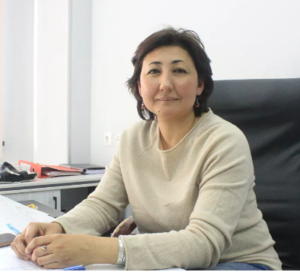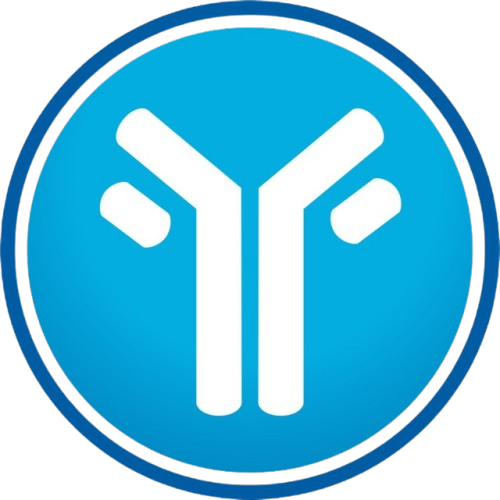About the laboratory
The research of the laboratory is focused on expanding and deepening modern knowledge in the field of fundamental immunology and applied immunology, which includes studying issues related to primary or innate and secondary immunodeficiency states. The goal of the laboratory is to study the fundamental basis of immune-dependent conditions with the search for target targets for immunodiagnostics, immunotherapy, and immunorehabilitation.
The Laboratory of Fundamental Immunology was established in 2001 at the Institute of Immunology and Human Genomics of the Academy of Sciences of the Republic of Uzbekistan. The first head of the laboratory was Dr. Rizopulu A.P., a senior researcher in biological sciences, until 2003. Since 2004, the laboratory has been led by Dr. Ismailova Adolat Abdurakhimovna, a Doctor of Medical Sciences, Professor.
Over the years, the laboratory has prepared and defended over 10 doctoral and candidate dissertations. The research interests of the laboratory’s scientific staff have included and continue to focus on the following areas:
Physiological age-related features of the immune system
Immunity in children and the elderly
The impact of stress on the immune system
The influence of Uzbekistan’s climatic characteristics on immunity
Specifics of the immune system and its functioning in primary or congenital immunodeficiencies and secondary immunodeficient conditions, particularly in oncological, infectious, allergic, and autoimmune diseases
Development and implementation of modern principles of immunodiagnostics, immunotherapy, and immunorehabilitation
Development and implementation of in vitro studies of immunotropic drugs in the pharmaceutical industry
The laboratory collaborates closely with medical universities and research institutes in Uzbekistan, as well as with institutions abroad.

Dr. Ismailova Adolat Abdurakhimovna – Doctor of Medical Sciences, Professor
Research Areas: Fundamental and Clinical Immunology, Oncoimmunology, Ecological Immunology, Pediatrics, Infectious Diseases, Autoimmune Diseases, Immunoproliferative Diseases
BRIEF INFORMATION
Dr. Ismailova Adolat Abdurakhimovna is the head of the Laboratory of Fundamental Immunology at the Institute of Immunology and Human Genomics of the Academy of Sciences of the Republic of Uzbekistan, a Doctor of Medical Sciences, Professor.
Dr. A.A. Ismailova is a respected scientific researcher in the field of fundamental and clinical immunology, both nationally and internationally. Since 2004, she has been leading the Laboratory of Fundamental Immunology (from 2016 to 2018, she held the position of Deputy Director for Scientific Affairs at the Institute of Immunology and Human Genomics).
Dr. Ismailova A.A. has authored over 250 scientific publications, including 4 monographs, 5 patents (including 1 international patent), 22 methodological recommendations, and 5 informational letters. Under her guidance, 3 doctoral and 2 candidate dissertations have been completed.
From 2008 to 2014, she served as a professor and later as the head of the Department of Medical Immunology and Immunopharmacology at the Institute for Advanced Training of Doctors of the Ministry of Health of Uzbekistan.
Dr. Ismailova actively researches physiological, primary, and secondary immunodeficiency states related to infectious, allergic, autoimmune, and immunoproliferative diseases. Over the past 5 years, the laboratory’s focus has been on studying the prevalence, detection, immunodiagnostics, and immunotherapy of patients with primary and secondary immunodeficiencies in Uzbekistan.
Since 2021, Dr. Ismailova has been working as a consultant and clinical immunologist at the Center for Pediatric Hematology, Oncology, and Clinical Immunology of the Ministry of Health of Uzbekistan, where she consults and treats patients with primary congenital immunodeficiencies.
Under her guidance, preclinical experimental studies have been conducted and approved for new domestic immunotropic drugs in vitro, including an antiviral vaccine developed by biologists from the Academy of Sciences and the Ministry of Innovative Development of Uzbekistan.
From 2015 to 2017, she served as the scientific secretary of the Scientific Council on Medical Genetics; Allergology and Immunology; Molecular Biology; Molecular Genetics; Molecular Biotechnology; Cell Biology; and Developmental Biology (in medical sciences).
Since 2020, she has been the chair of the Scientific Seminar at the Scientific Council for defending candidate and doctoral dissertations.
Since 2006, she has been the founder of Immunology Schools for practicing physicians.
Dr. Ismailov A.A. – Doctor of Medical Sciences, Professor
Petrova T.A. – Candidate of Biological Sciences, Senior Researcher
Sher L. – Junior Researcher
Kasimova M.S. – Candidate of Medical Sciences, Senior Researcher
Rakhimjanov A. – Junior Researcher
Ikramova D. – Junior Researcher
Kurtvelieva L. – Laboratory Assistant
Study of cellular and humoral immunity in primary and secondary immunodeficient states, manifested in infectious, autoimmune, allergic, and autoimmune diseases.
Monitoring the immune status of the population in our region under normal conditions and in various pathological states.
Investigation of cellular mechanisms of immune response in experimental immunodeficient states. Development of new methods of immunodiagnostics. Design of effective ways of immune correction and immunorehabilitation of immunodeficient states using new immunotropic drugs.
Examination of immunogenetic mechanisms of resistance to antiviral therapy and their correlation with phenotypic changes in patients with chronic viral hepatitis B and C.
Exploration of immunopathogenetic mechanisms in the development of autoimmune conditions in extrahepatic manifestations of chronic viral hepatitis.
Identification of the influence of hormonal background peculiarities in pubertal age on the formation of immune and autoimmune disorders in patients with chronic viral hepatitis C.
Study of mechanisms of immunological deficiency formation based on the molecular-genetic structure of hepatitis C virus in mothers and children.
Development and implementation of immunological methods for diagnosis and treatment in preparing highly qualified athletes of the national team of Uzbekistan for the Olympic Games.
Examination of the impact of immunobiological factors in breast milk on the development of immune reactivity in newborns born to mothers with extragenital diseases.
Investigation of early immunological markers for the diagnosis of malignant neoplasms.
Modernization of laboratory methods for determining nonspecific factors of the immune system and their application in diagnosing secondary immunodeficiencies.
Development of highly effective methods for determining the immunotropic properties of drugs used in secondary immunodeficient states.
Development and implementation of algorithms for immunodiagnostics and immunotherapy of secondary immunodeficient states.
Development and optimization of immunological methods for conducting preclinical studies of domestically and internationally produced drugs with immunotropic properties (anti-inflammatory, immunomodulatory, immunostimulating, immunosuppressive) for the Pharmaceutical Committee of Uzbekistan.
Directions of Immunopharmacological Research Conducted in the Laboratory:
Preclinical studies on the biosafety of various groups of medicinal substances with determination of in vitro immunotoxic effects.
Preclinical studies on various groups of medicinal substances to assess allergenic properties.
Preclinical studies on medicinal substances to evaluate anti-allergic effects.
Preclinical studies on medicinal substances to investigate immunotropic activity (immunostimulation, immunosuppression).
Preclinical studies on medicinal substances to study immunomodulatory properties.
Preclinical studies on medicinal substances to examine anti-inflammatory properties.
Preclinical studies on medicinal substances to assess antiviral activity (interferon-inducing).
Establishment of a fundamental platform for the structure of preclinical studies of the above-mentioned properties.
Study of dose-dependent immunotropic properties of medicinal substances.
Development of experimental models of pathological conditions mimicking the clinical picture of socially significant diseases of the lungs, blood system, liver, pancreas, and other systems and organs.
Development of new research protocols for a deeper understanding of the immunotropic effects of medicinal substances.
Examination of the pathogenetic and regenerative potential of bone marrow cells under conditions of impaired cell regeneration influenced by immunotropic medicinal substances.
Search for biologically active substances among natural and synthetic compounds, and development of new medicinal products with immunotropic properties.
Research on molecular mechanisms regulating processes of cellular differentiation, migration, and proliferation of immune-competent cells to establish and develop infrastructure for studies, developments, and implementation of cellular and regenerative technologies.
For the past 20 years, research has been conducted in the laboratory focusing on the study of immunopathogenesis, immunotherapy, and immunoprophylaxis of secondary immunodeficient conditions. To date, the scientific staff of the laboratory have carried out fundamental, applied, and innovative research projects: FA-F6-T093 “Immunogenetic mechanisms of resistance to antiviral therapy and their relationship with phenotypic changes in patients with chronic viral hepatitis B and C” (2012-2016);
FA-F3-T157 “Immunopathogenetic mechanisms of autoimmune conditions formation in extrahepatic manifestations of chronic viral hepatitis” (2007-2011);
I-8-28 “Implementation of immunological diagnostic and treatment methods in the training of highly qualified athletes of the national team of the Republic of Uzbekistan for the Olympic Games” (2008-2009) (innovative grant);
96-08 “Influence of hormonal background features of pubertal age on the development of immune and autoimmune disorders in patients with chronic viral hepatitis C” (2008-2009);
A-9-268 “Influence of immunobiological factors of breast milk on the formation of immune reactivity in newborns born to mothers with extragenital diseases” (2006-2008);
F-437 “Mechanisms of immunodeficiency formation depending on the molecular-genetic structure of hepatitis C virus in mothers and children” (2003-2007);
2.1.-04 “Early immunogenetic diagnosis of malignant neoplasms. Search for new domestic immunocorrectors” (2004-2005);
AE10-T092 “Modernization of laboratory methods for determining nonspecific factors of the immune system and their application in the diagnosis of secondary immunodeficiencies” (2012-2014).
Republican research institutes and universities: Republican Specialized Scientific and Practical Medical Center for Maternal and Child Health, Tashkent Pharmaceutical Institute, Tashkent Medical Academy, Tashkent State Technical University named after I. Karimov, Republican Specialized Scientific and Practical Medical Center of Surgery named after Acad. V. Vakhidov.
Foreign research institutes: Federal State Budgetary Scientific Institution “Medical and Genetic Research Center named after Acad. N.P. Bochkov (Moscow, Russia), Museum of Human and National Museum of Natural Sciences (Paris, France), University of Toulouse (Toulouse, France), University of Montpellier (Montpellier, France) University of Nottingham (Nottingham, UK).
Private specialized companies: Immunogen test LLC, ROSSA LLC, Biomedical Innovation LLC, Immunohealth genesis LLC.
Professional non-governmental non-profit organizations: The Association of Biomedical Technologies of the Republic of Uzbekistan, the Association of Pediatricians of the Republic of Uzbekistan, the Association of Medical Geneticists of the Russian Federation, the Eurasian Association of Medical Geneticists.
